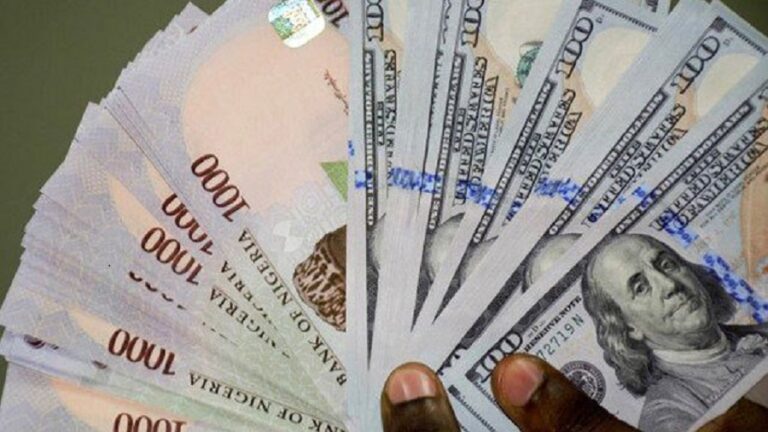By Atoyebi Nike
Nigeria’s foreign exchange market opened the month under pressure as the naira weakened sharply on Monday, slipping to N1,436.34/$ from its recent high of N1,421.73/$, a loss of N15 or 1.03 percent. Data from the Central Bank of Nigeria shows the decline followed comments by US President Donald Trump threatening possible military action against Nigeria over alleged religious persecution.
The drop in the naira coincides with renewed global dollar strength. The US Dollar Index (DXY) traded around 99 on Tuesday during London hours, extending its rally into a fifth consecutive session. Uncertainty around the US Federal Reserve’s December policy outlook has supported the greenback, while traders scale back expectations of another interest rate cut.
The dollar also strengthened against the yen, which slipped after warnings from Japanese officials, and hovered near a three-month high as markets reacted to mixed signals from Fed policymakers. A prolonged US government shutdown has further complicated economic data flow, making forecasting difficult.
According to the CME FedWatch Tool, traders now see a 65 percent chance of a December rate cut, down sharply from 94 percent a week earlier. Manufacturing data in the US remained weak, with the Institute for Supply Management reporting an eighth straight month of contraction in October.
The firm dollar weighed on global commodities as well. Gold prices dropped below $4,000 per ounce on Tuesday, as expectations of limited rate cuts and trade tensions between China and the US reduced demand for the metal.
Fed Chair Jerome Powell noted that another interest rate cut this year is “not a foregone conclusion,” citing the need for clearer economic data once the government shutdown ends.
The combination of domestic uncertainty triggered by Trump’s remarks and a stronger US dollar environment continues to heighten volatility in Nigeria’s FX market.
